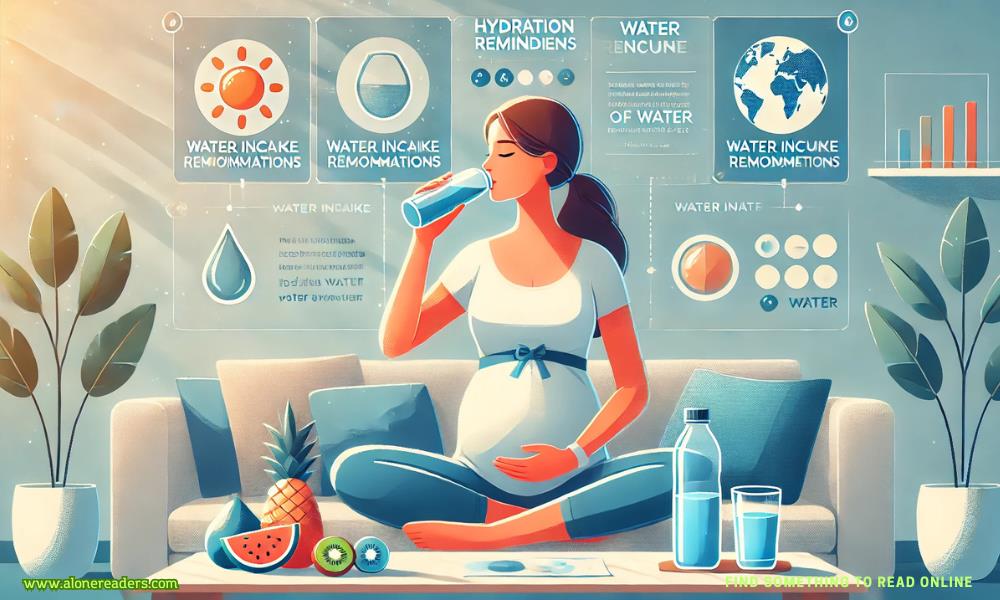
Hydration is one of the most important factors for maintaining overall health during pregnancy. Proper hydration supports various bodily functions, including nutrient transportation, temperature regulation, and waste elimination. During pregnancy, your body requires more fluids to meet the increased demands of growing a baby, making it crucial to stay properly hydrated.
In this article, we’ll explore why hydration is so important during pregnancy, how much water you should be drinking, and offer practical tips for staying hydrated.
Pregnancy places additional stress on the body, and staying hydrated is key to supporting both you and your baby. Water makes up a significant portion of amniotic fluid, helps in the production of extra blood volume, and assists in nutrient transportation to your baby.
Here are some of the key reasons hydration is so crucial:
Pregnant individuals need more water than usual to maintain their health and support the development of their baby. According to the Institute of Medicine, the recommended daily water intake during pregnancy is about 80 to 100 ounces (approximately 2.4 to 3 liters). This is more than the standard recommended amount for non-pregnant individuals, which is about 64 ounces (1.9 liters).
However, individual needs can vary based on several factors, including activity level, climate, and body size. If you are active, live in a hot climate, or are carrying multiples, you may need more water.
Factors That Affect Your Water Needs:
Now that we know why hydration is important and how much water is needed, let's dive into some practical tips for staying hydrated during pregnancy.
1. Carry a Water Bottle Everywhere
One of the easiest ways to ensure that you’re getting enough water is to carry a water bottle with you wherever you go. Having it on hand makes it more likely that you’ll remember to drink throughout the day. Opt for a reusable bottle that’s easy to carry and helps you keep track of how much you’re drinking.
2. Drink Small Amounts Frequently
It can be overwhelming to drink a large glass of water all at once, especially if you’re dealing with nausea or indigestion. Instead, sip small amounts throughout the day. This method helps your body absorb water more efficiently, and it can be gentler on your stomach.
3. Add Flavor with Natural Infusions
Plain water can sometimes feel boring, but adding natural flavorings can make it more enjoyable. Try infusing your water with fruits such as lemon, cucumber, or berries. You can also add a few sprigs of mint or a slice of ginger to give it a refreshing taste. Infused water is a great way to encourage yourself to drink more.
4. Hydrate with Foods High in Water Content
Drinking fluids isn’t the only way to stay hydrated. Certain fruits and vegetables are naturally high in water and can help contribute to your daily fluid intake. Some great options include:
5. Set Reminders to Drink Water
It can be easy to forget to drink water during your busy day, but setting reminders can help. Use your phone or a hydration app to remind you to drink water at regular intervals. Some apps can track your daily water intake, ensuring you stay on top of your hydration goals.
6. Limit Caffeine and Sugary Drinks
While it’s okay to enjoy a cup of coffee or tea now and then, too much caffeine can lead to dehydration. Caffeine is a diuretic, which means it can cause your body to lose more fluids. The same goes for sugary drinks like sodas. Stick to water, herbal teas, and naturally flavored drinks to ensure you’re staying hydrated without adding unnecessary calories or dehydrating substances.
7. Drink Water During Meals
Drinking a glass of water before or during meals can help ensure that you’re staying hydrated. Additionally, drinking water with meals can help aid digestion and prevent constipation, a common issue during pregnancy. However, try not to drink excessive amounts during meals, as it may cause discomfort or bloating.
It’s important to recognize the signs of dehydration so that you can take immediate action to rehydrate. Some common symptoms of dehydration include:
If you notice any of these symptoms, make sure to drink fluids right away. In severe cases, dehydration can lead to complications such as low amniotic fluid, premature labor, or urinary tract infections. If symptoms persist or worsen, contact your healthcare provider.
While dehydration is often manageable with proper hydration, there are instances when it can become more serious. If you experience excessive vomiting or diarrhea, which can lead to rapid fluid loss, or if you are unable to keep fluids down, seek medical help. Your healthcare provider may suggest an IV drip for hydration if you are severely dehydrated.
Conclusion
Staying hydrated is one of the simplest and most effective ways to ensure a healthy pregnancy. Drinking enough water supports your body’s increased fluid demands, helps prevent common pregnancy discomforts, and contributes to the overall well-being of both you and your baby. By following the hydration tips provided in this article, you’ll be well on your way to maintaining optimal hydration and supporting a healthy pregnancy.
Remember that everyone's hydration needs are different, so it’s important to listen to your body and consult your healthcare provider if you have any concerns. Prioritize your hydration, and you’ll feel energized and ready to tackle the joys of pregnancy with confidence!